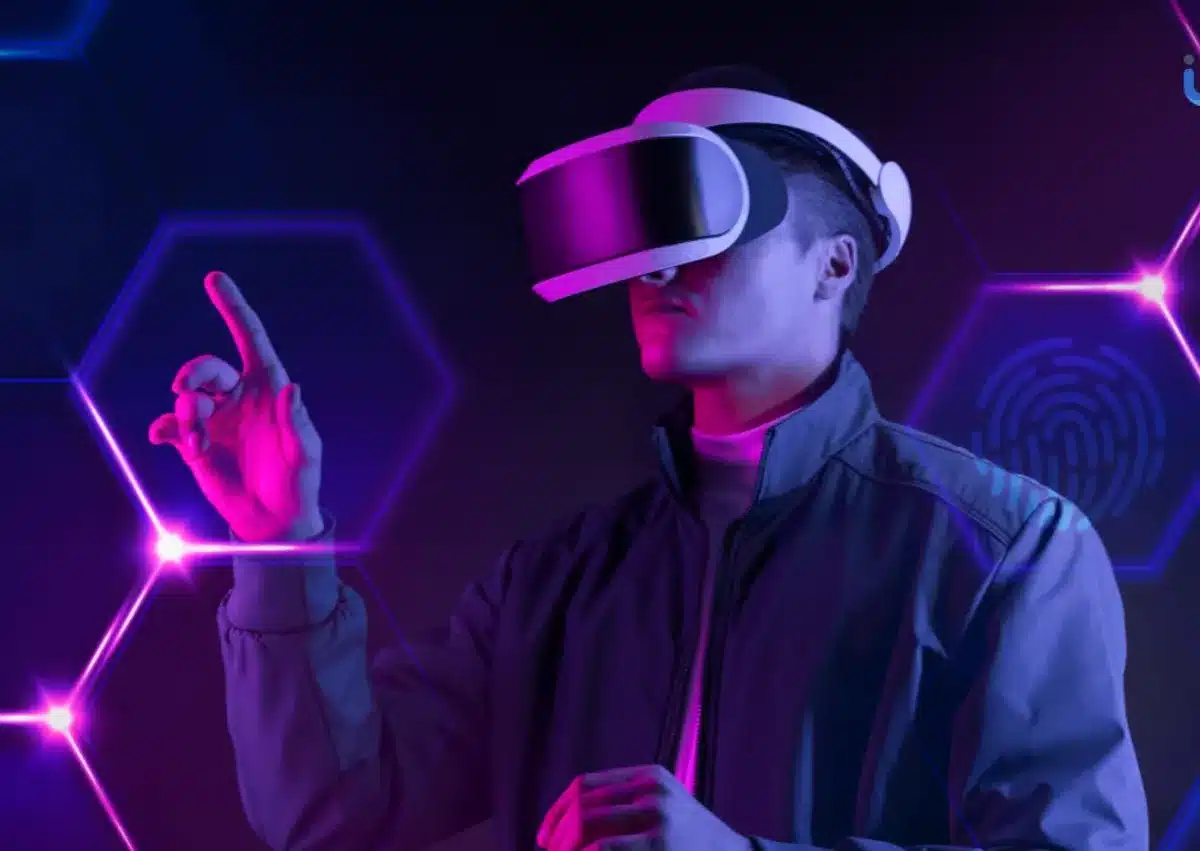The rise of metaverse marketing is revolutionizing how brands connect with consumers by harnessing virtual reality ads, immersive brand experiences, and Web3 branding. This digital frontier offers marketers unprecedented opportunities to create interactive, community-driven campaigns that transcend traditional advertising boundaries. As we approach 2025 and beyond, mastering these innovations is critical for brands aiming to engage tech-savvy audiences meaningfully. This guide explores cutting-edge trends, practical strategies, and real-world successes, highlighting how Amquest Education’s Digital Marketing and Artificial Intelligence course equips marketers to excel in this evolving landscape.
Introduction: The Metaverse as a Marketing Powerhouse
The metaverse—a collective virtual space blending augmented reality (AR), virtual reality (VR), and blockchain—has shifted from futuristic concept to an essential marketing ecosystem. Brands now leverage virtual reality ads, immersive brand experiences, and digital avatars to captivate younger, digitally native consumers who demand interactive, personalized content. This transformation elevates digital marketing from passive messaging to experiential engagement and community building. For marketers wanting to lead in 2025, understanding the intersections of NFT marketing, AR/VR campaigns, and virtual commerce is vital.
The Evolution of Metaverse Marketing: From Experimentation to Essential Strategy
Early metaverse marketing experiments centered on novelty AR filters or virtual events with limited reach. As platforms like Roblox, Fortnite, and Decentraland matured, brands recognized the metaverse’s potential as an immersive environment for deeper consumer interaction. Today, metaverse marketing includes:
- AR filters and lenses that users share socially, amplifying brand messaging[1]
- Virtual brand worlds where consumers explore and interact with branded products and experiences[1][2]
- NFT collectibles offering digital ownership and exclusivity[1][2]
- Virtual commerce (V-commerce) enabling seamless shopping within immersive digital spaces[2]
This growth is fueled by a youthful metaverse demographic—average age 28.7 years—with balanced gender participation, making it ideal for lifestyle, retail, and entertainment brands targeting millennials and Gen Z.
Key Features and Trends in Metaverse Marketing
Virtual Reality Ads and Immersive Brand Experiences
Brands increasingly embed products within fully interactive 3D environments, allowing users to engage in novel ways. For instance:
- Gucci’s collaboration with Roblox created a Gucci-themed virtual world where users could purchase digital handbags and belts while gaming[2]
- Nike’s acquisition of RTFKT Studios launched Nike Cryptokicks, virtual sneakers blending physical and digital ownership
Such immersive brand experiences foster stronger emotional connections and longer engagement times—AR campaigns average 75 seconds of dwell time, far exceeding traditional ad formats.
Web3 Branding and Digital Avatars
Web3 branding enables decentralized ownership and authentic brand interactions via NFTs and cryptocurrencies. Digital avatars serve as personal brand ambassadors and social currency, allowing users to express identity through branded skins and accessories. This opens new frontiers for brand activation in the metaverse and experiential marketing.
Virtual Commerce (V-commerce)
V-commerce integrates shopping directly into metaverse platforms, blending entertainment with commerce. Brands like Too Faced have created virtual product gardens and interactive discount campaigns, offering frictionless pathways from discovery to purchase within immersive environments.
Advanced Tactics for Success in Metaverse Marketing
To thrive, marketers should:
- Co-create with users: Encourage consumers to generate content by wearing branded AR filters or participating in virtual games[1]
- Leverage AI and data analytics: Use engagement metrics and AI tools to personalize experiences and optimize campaigns. AI-driven automation enables efficient management of expansive virtual environments
- Bridge physical and virtual: Combine real-world events with virtual experiences for hybrid engagement that amplifies reach and impact
- Prioritize inclusivity and diversity: Reflect the metaverse’s multicultural and gender-balanced user base in campaigns and storytelling
Storytelling and Community: The Heart of Metaverse Marketing
Storytelling in the metaverse transcends traditional narratives by immersing consumers inside brand stories through interactive environments and avatars. Building communities around shared experiences turns passive audiences into active participants, deepening brand loyalty and advocacy. This shift from broadcast to co-creation is redefining how brands build lasting relationships.
Measuring Success: Analytics and Insights in the Metaverse
Effective metaverse marketing relies on tracking key engagement metrics, including:
- Time spent in virtual brand spaces
- Volume and reach of user-generated content
- Interaction rates with AR/VR ads
- Virtual commerce transactions and conversion rates
These insights enable marketers to refine strategies, demonstrate ROI, and adapt rapidly to consumer behavior.
Business Case Study: Gucci’s Metaverse Journey
Brand Challenge and Strategy
Gucci aimed to engage younger consumers through immersive digital experiences that preserve brand prestige. Partnering with Roblox, Gucci created the Gucci Garden virtual world, offering users digital collectibles and interactive storytelling[2].
Results
- Tens of millions of visitors
- Over 4.5 million digital items sold
- Enhanced brand awareness and affinity among Gen Z audiences
Gucci’s campaign exemplifies how immersive brand experiences and virtual commerce can drive meaningful engagement and business growth in the metaverse.
Challenges and Considerations in Metaverse Marketing
While promising, metaverse marketing poses challenges:
- Privacy and data security: Collecting and managing user data in virtual environments requires rigorous safeguards
- Platform fragmentation: Multiple metaverse platforms with varying standards complicate consistent brand experiences
- Technological barriers: High development costs and technical expertise are needed to create compelling metaverse campaigns
- Accessibility: Ensuring experiences are inclusive and accessible across devices, especially mobile, is critical
Addressing these challenges is essential for sustainable success.
Actionable Tips for Marketers Entering the Metaverse
- Define clear objectives: Establish whether your focus is brand awareness, engagement, or sales conversions
- Experiment with AR filters: Create shareable, branded AR lenses to build social currency[1]
- Develop immersive virtual spaces: Craft branded environments for deeper consumer interaction[1]
- Leverage NFTs strategically: Use digital collectibles to reward loyalty or create exclusivity[1][2]
- Integrate AI tools: Employ AI-led personalization and campaign automation for scalability
- Partner with platforms and influencers: Collaborate with metaverse platforms and digital creators to amplify reach
- Measure and iterate: Use analytics continuously to refine your campaigns
Why Choose Amquest Education’s Digital Marketing and Artificial Intelligence Course?
Marketers aiming to lead in metaverse marketing gain a distinct advantage with Amquest’s premier Digital Marketing and Artificial Intelligence course in Mumbai, which offers:
- AI-powered learning modules covering AR/VR campaigns, Web3 branding, and virtual commerce
- Hands-on projects and internships with industry partners for real-world experience
- Expert faculty guiding learners through emerging technologies and strategies
- Flexible online access for learners nationwide
- Proven placement outcomes and comprehensive career support in digital marketing
This program uniquely blends AI integration with immersive digital marketing, positioning learners at the forefront of metaverse innovation.
Conclusion
Metaverse marketing is rapidly becoming a critical frontier for brands to engage dynamic, interactive audiences through virtual reality ads, immersive brand experiences, and Web3 branding. As digital avatars and virtual commerce reshape consumer behavior, marketers must adopt innovative, data-driven strategies to remain relevant. Mastering these skills through advanced education like Amquest’s Digital Marketing and Artificial Intelligence course is key to navigating and excelling in this transformative landscape.
FAQs
Q1: How can brands effectively use virtual reality ads in metaverse marketing?
By creating immersive 3D environments where users interact directly with products or experiences, brands foster stronger engagement and emotional connection beyond traditional ads.
Q2: What benefits do immersive brand experiences offer in the metaverse?
They increase dwell time, improve brand recall, and build community by making consumers active participants in brand storytelling.
Q3: How does Web3 branding influence metaverse marketing?
Web3 enables decentralized ownership and digital asset trading via NFTs, allowing brands to cultivate exclusive and authentic consumer relationships.
Q4: What role do digital avatars play in metaverse marketing?
Avatars act as personal brand ambassadors and social currency, enabling users to express identity with branded accessories or skins.
Q5: How is virtual commerce changing the shopping experience?
V-commerce integrates shopping directly into virtual worlds, enabling seamless discovery, interaction, and purchase of products within immersive settings.
Q6: Why is AI important in metaverse marketing strategies?
AI powers personalized experiences, automates campaign management, and provides data-driven insights essential for scaling metaverse marketing efforts.







